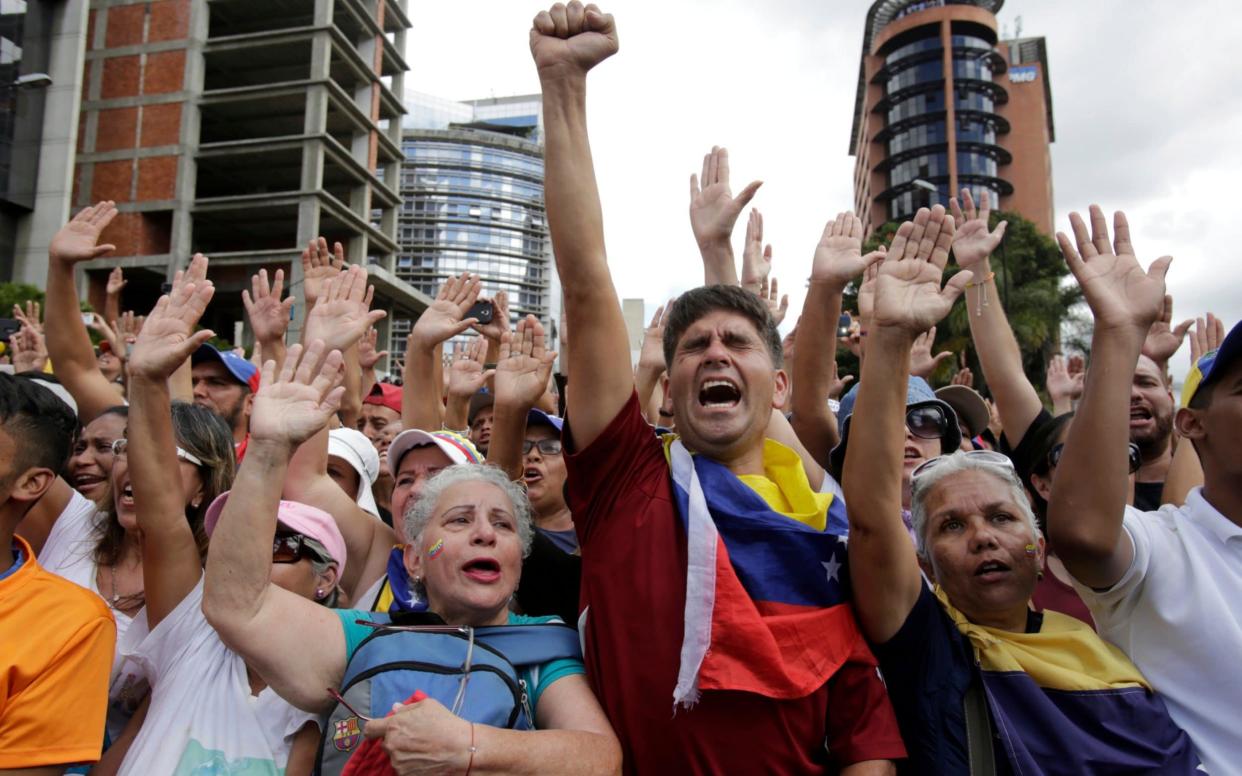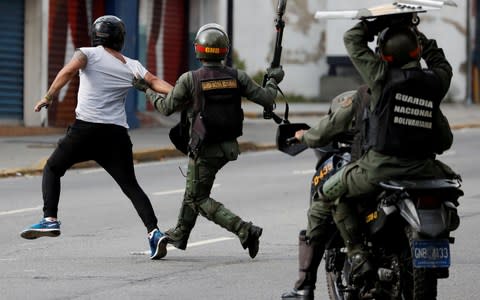Venezuela shadow government leader offers amnesty to Maduro as death toll rises from rival clashes

The self-declared interim president of Venezuela has promised Nicolas Maduro amnesty if he cedes power in a peaceful transition.
Juan Guaido has been in hiding since the 35-year-old was symbolically sworn in Wednesday before tens of thousands of cheering supporters, promising to uphold the constitution and rid Venezuela of Mr Maduro's dictatorship.
Speaking from an undisclosed location, Mr Guaido told Univision he would consider granting amnesty to Maduro and his allies if they helped return Venezuela to democracy.
"Amnesty is on the table," said Mr Guaido, who just weeks earlier was named head of the opposition-controlled congress. "Those guarantees are for all those who are willing to side with the constitution to recover the constitutional order."
He added that a similar move had played a role in Chile's democratic transition.
Venezuela's powerful military threw its weight behind Mr Maduro on Thursday as the US-backed opposition leader Mr Guaido pressed a direct challenge to his authority.
As the death toll from days of street protests jumped to 26, a defiant Maduro announced the closure of Venezuela's embassy and consulates in the United States, a day after President Donald Trump's administration declared his regime "illegitimate."
The oil-rich but economically devastated country was plunged into uncertainty Wednesday when Mr Guaido, head of the National Assembly, proclaimed himself "acting president" - earning swift endorsement from Washington, the UK, and a dozen regional powers including Brazil, Argentina and Colombia.
Jeremy Hunt, the foreign secretary, said: “The United Kingdom believes Juan Guaidó is the right person to take Venezuela forward. We are supporting the US, Canada, Brazil and Argentina to make that happen.”
Jeremy Corbyn, who has previously declined to condemn the regime, did not back Mr Hunt's position. A spokesman for Mr Corbyn said: “[Mr Maduro] is still the president of the country. We don’t support outside interference.”
He added: “We think that dialogue and a negotiated settlement are needed to overcome the crisis in Venezuela. The future of Venezuela is for Venezuelans.”

Russia accused the United States of trying to usurp power in Venezuela and warned against US military intervention there.
Mr Maduro's reelection last year was contested by the opposition, and criticized internationally - but the socialist leader has until now retained the loyalty of the powerful military, whose response was being keenly watched.
Flanked by military top brass, Defense Minister Vladimir Padrino, himself a general, declared the 56-year-old Maduro "the legitimate president" - and vowed to defend his authority against an attempted "coup d'etat."
Following Padrino's lead, eight generals in turn reiterated their "absolute loyalty and subordination" to the socialist leader in messages carried on state television.
And the Supreme Court - made up of regime loyalists - doubled down by reaffirming its allegiance to Maduro's "legitimate authority."
"A coup is brewing in Venezuela with the consent of foreign governments," charged the court's president Maikel Moreno.

